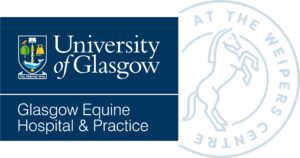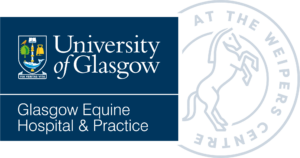Regenerative Therapies
Current technology enables us to take cells and blood-derived products from a horse and implant the processed or cultured product back into the same horse. Known as regenerative therapies, these products can be used to treat a variety of orthopaedic conditions.
Three of the most common regenerative therapies employed at Glasgow Equine Hospital include Stem Cell therapy, Platelet Rich Plasma and Interleukin-1 Receptor Antagonist Protein (IRAP®).
The clinician responsible for the care of your horse at Glasgow Equine Hospital will discuss the potential benefits and risks associated with each therapy, together with post-implantation care and exercise.
Stem Cell Therapy
Stem cell therapy can be used in the treatment of tendon, ligament and joint diseases in the horse and has been shown to lower re-injury rates. Samples of bone marrow or fat are collected and under specialist laboratory conditions, stem cells can be cultured. These can be placed in areas of injury, where they can integrate into local tissue and aid in repairing injury.
Implantation is usually, for a tendon injury, a straightforward procedure, performed under sedation and using ultrasound to guide the injection. This can be performed on an out-patient basis. Injections of stem cells into joints or other more complicated lesions may necessitate a general anaesthetic, particularly if the treatment requires inspection and treatment via ‘keyhole’ surgery. These cases will need to be hospitalised for a day or two.
Platelet Rich Plasma
PRP is a blood-derived product which can be used to treat soft tissue and joint injuries in horses. A sample of blood is taken from the horse, which is processed to concentrate blood platelets within the sample. After processing, the PRP sample can be injected back into the horse, directed at the site of injury. Once administered, platelets release many growth factors, which stimulate the production of repair tissue at the site of injury. Although useful for certain cases of tendonitis, desmitis (inflammation of tendons and ligaments), and joint injuries, PRP may not be an appropriate treatment for every case.
Where appropriate, clinicians at Glasgow Equine Hospital can use PRP as an adjunctive treatment in the rehabilitation of various orthopaedic conditions in horses.
IRAP®
Interleukin-1 Receptor Antagonist Protein therapy (IRAP®) is a blood-derived product used to treat certain cases of joint inflammation and/or degenerative joint disease, muscle injuries, and tendon and/or ligament injuries.
Blood collected from the horse is processed to retrieve serum, which contains active quantities of anti-inflammatory and regenerative cytokines (small proteins responsible for cell signalling). The serum can then be re-injected, at site(s) of injury or disease, usually over 3-4 occasions.
Where appropriate, clinicians at Glasgow Equine Hospital can use IRAP® as an adjunctive treatment in the rehabilitation of various orthopaedic conditions in horses.


